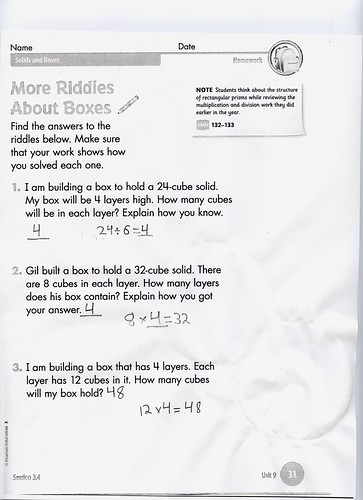from
Doug Sundseth:
25-year old childless female teachers spend 30 minutes a day screaming at the kids....
And we have bomb threats.
Cause, meet effect.
When you set up an adversarial relationship between students and staff, especially if the students think such a relationship is unjust, the students will retaliate. And smart kids are really good at finding and pushing buttons. If you're lucky, the retaliation will just be crude cartoons. If not, you'll get this sort of silly, umm, stuff.
And if your response is over the top, the result will be contempt, not fear, and more such incidents, not fewer.
I bet when they were in ed school, the staff members didn't see themselves as Vice Principal Rooney or Dean Wormer. Welcome to the other side, folks.
I ROFLed when I read this.
Plus: I'm glad Doug said it, not me.
Of course this is what I
think...although I've endeavored to be at least
semi-nonjudgmental on the school's handling of the bomb threat situation, because if I tried to run a middle school I'd get EATEN ALIVE.
Still..... Doug hit the nail on the head as far as the kids' attitudes go. They see their treatment as unjust and they're saying so openly; they're prison-marching themselves around the grounds under the eyes of their teacher guards, for god's sake. They're circulating petitions; the student council leaders are pow-wowing with the principal about greater freedoms or some such; supposedly some kid went to the guidance counselor to complain about the lunchtime screaming and the guidance counselor said he/she couldn't do anything about it ---- every day there's some new tale.
It doesn't matter whether the tales are "true" or not; all that matters, in this situation, is the widespread perception that the school is simply out of control
and off-topic. (On-topic being serious study in the liberal arts disciplines.)
Even the
parents are in a state of open rebellion, just about.
Plus these kids
are smart.
The Board president likes to say that "In Irvington everyone is above average" - well guess what?
Everyone is above average.
If some kid wants to make a bomb threat he or she will figure it out.
I don't see any way to stop the threats at the middle school short of installing video cameras and banks of monitors everywhere, and I don't see that working, either. Someone's going to hack them.
It seems to me we're going to have bomb threats no matter what anyone does, and the more crazed the reaction, the more threats - isn't that the way it works?
...............
Of course the other issue is:
Everyone said don't build a middle school attached to a high school.
Everyone said don't attach a middle school to a high school back when the middle school was being planned, but did the district listen?
HECK no.
So a kid who wants to make a bomb threat can empty out two schools with one threat.
It's crossed my mind that we may not even be having more bomb threats than other schools; we may just be having the regular 3 bomb threats a high school would have + the regular 3 bomb threats a middle school would have, but it adds up to 6 for both schools because they're attached & they both have to be evacuated.
Meanwhile, what possibilities does the physical fact of a high school and a middle school being physically attached suggest to you?
Does it suggest the possibility of a mathematically gifted middle-schooler being able to take a high school math class without having to be bused across town?
If so, that just goes to show how much you know.
We can't have gifted middle school kids take advanced classes at the high school.
That would violate the middle school model.
Seriously. The principal actually told us so last December when we were bugging him about teaching Earth Science to all the 8th graders instead of just the select few. He said he couldn't do that because we don't have enough certified Earth Science teachers. We said couldn't the high school Earth Science teacher teach it, seeing as how it's a high school course. He said, yes, the high school teacher could just walk over to the middle school and teach it, but "that would violate the middle school model."
In conclusion.....I have no idea what's going on with the bomb threats.
But Doug's take is sure the way I feel.







